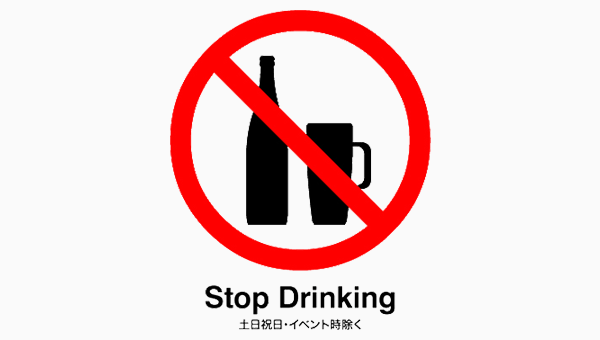Applying hypnosis in fighting alcohol and drug addiction
Applying hypnosis in fighting alcohol and drug addiction: The harmless treatment method

Exploring use of hypnosis to fight drug addiction can be effective if done professionally. Actually many experts are applying hypnosis as a remedy to this problem
Today in the global world is well established that addiction is a powerfully all-consuming disease that affects essentially every aspect of health and well-being. The diversifications and effects of this pandemic ranging from deteriorating physical health to legal and financial troubles the complications associated with addiction to drugs or alcohol misuse are serious, extensive and in some cases life-threatening. What’s more devastating is that along with its diverse effects, this condition (addiction) is often as a result of numerous causes most of which are deeply-rooted in the individuals’ addict’s consciousness. It is because of this background that we want to focus our discussion on how applying hypnosis in fighting alcohol and drug addiction from our communities can be very effective in kicking out addiction from our lives. And to give this discussion a more professional approach, we spoke with the experts from AWAREmed Health and Wellness Resource Center under the able leadership of doctor Dalal Akoury MD and President of the facility to give us more insight about the use of hypnosis in fighting drug addiction. In view of that doctor Akoury is registering that due to the many causes of addiction, it is important to appreciate that for any effective treatment to be realized, it must in co-operate among other techniques comprehensive psychological therapies specifically premeditated to fully refurbish the addict’s thought and behavioral processes. One such method of addressing the causes and effects of addiction is through the application of hypnosis, or hypnotherapy. Therefore doctor Akoury is going to take us through following in details to look at the use of hypnotherapy in the treatment of addiction which by the way includes information on methods, effectiveness and many more. And now to kick off the discussion, let us first understand what really hypnosis is?
Applying hypnosis in fighting alcohol and drug addiction: What is Hypnosis?
Professionally hypnosis is a trance-like state of heightened concentration and focus. Typically achieved with the help of a hypnotherapist, who may use mental images and verbal repetition, the state of hypnosis leaves the patient calm and relaxed. Contrary to popular belief or do I call it a myth, hypnosis does not lead to a complete loss of control over one’s actions and behaviors but rather, it simply promotes focus and relaxation, leaving the individual more open to the power of suggestion. Along with several other diseases, hypnosis has proven to be effective for: drug addiction, prescription drug addiction and alcoholism.
Exploring use of hypnosis to fight drug addiction: Drug Addiction and Hypnotism
Doctor Akoury is saying that it is important that we understand certain point about hypnosis from the very beginning. One fundamental fact is that hypnosis is often used to help individuals gain control over unhealthy thoughts and behaviors. Like for example, it may be used in approaching and overcoming the symptoms of depression, anxiety and other disorders which are potentially triggers of addiction. Therefore when it comes to addiction, hypnosis can be a valuable tool in helping direct addicts to address the underlying causes of the disease as well as achieve and maintain sobriety and thereby improving their overall health and enhances their quality of life.
When opting for the application of hypnosis it is important to note that the methods of application may vary, but under normal circumstances the sessions will usually begin with a full assessment of the client’s addiction history, physical and psychological health, recovery goals and other important factors put together. The next step would be the hypnotherapist may guide you the client into a state of hypnosis using a calming, gentle and soothing tone. Once the hypnotherapist has succeeded in putting the patient under hypnosis, the client is in a relaxed, approachable state, open to the therapist’s guidance and suggestions. At this point the therapist will then suggest methods of setting and achieving goals regarding addiction recovery, enhanced health and heightened well-being. Besides that it is now becoming common with many therapist particularly hypnotherapist to find it beneficial to promote the conception of meaningful, brilliant mental pictures of the client with an aim of achieving certain objectives. Like for instance, a therapist may ask the client to picture himself or herself in the future as a sober and healthy person, the purpose of doing this is to keep the patient on the positive atmosphere where they are able to start visualizing and experiencing all the rewards that will accompany addiction recovery and the comfort that will be achieved when the whole problem is eliminated. It is one of the powerful tools used to remedy the situation even much faster than one would have thought. The next concern we need to address is that are there any risk that are associated with hypnotherapy?
Applying hypnosis in fighting alcohol and drug addiction: Are there risks associated with hypnotherapy?
The most important thing with hypnosis is professionalism. That is to say when considering this option, the expert performing it must be highly qualified to undertake the task. In other words he or she must be a well-trained therapist, hypnotherapy is considered a safe form of alternative medicine treatment. Remember that under normal circumstances, the adverse reactions to hypnotherapy are often extremely rare; but like with all treatment, some clients may experience certain mild effects like:
- Headache.
- Dizziness or drowsiness.
- Heightened anxiety.
- Psychological or emotional distress, which may occur in individuals suffering from severe mental illness.
- False memory syndrome.
Applying hypnosis in fighting alcohol and drug addiction: Effectiveness
Finally before opting for hypnosis, it is important that you find out its effectiveness on your health. Doctor Akoury is registering that hypnotherapy can be an extremely effective tool in the treatment of addiction. It’s therefore very important to note, that it is best used as a complimentary therapy, accompanying traditional methods of addiction recovery. What that communicates is that hypnosis should be used alongside other forms of addiction treatment like for example, when used in combination with cognitive and behavioral therapies, group counseling and other strategies, hypnosis can enhance the odds of rehabilitation, prevent relapse with addictive substances and promote better quality of life. This is all we are advocating for and therefore if you are struggling with any kind of addiction and you need someone to talk to, don’t hesitate to call and schedule for an appointment with the home of addiction experts at AWAREmed Health and Wellness Resource Center and doctor Dalal Akoury and her team of able experts will professionally address all your concerns in confidence.
Applying hypnosis in fighting alcohol and drug addiction: The harmless treatment method






